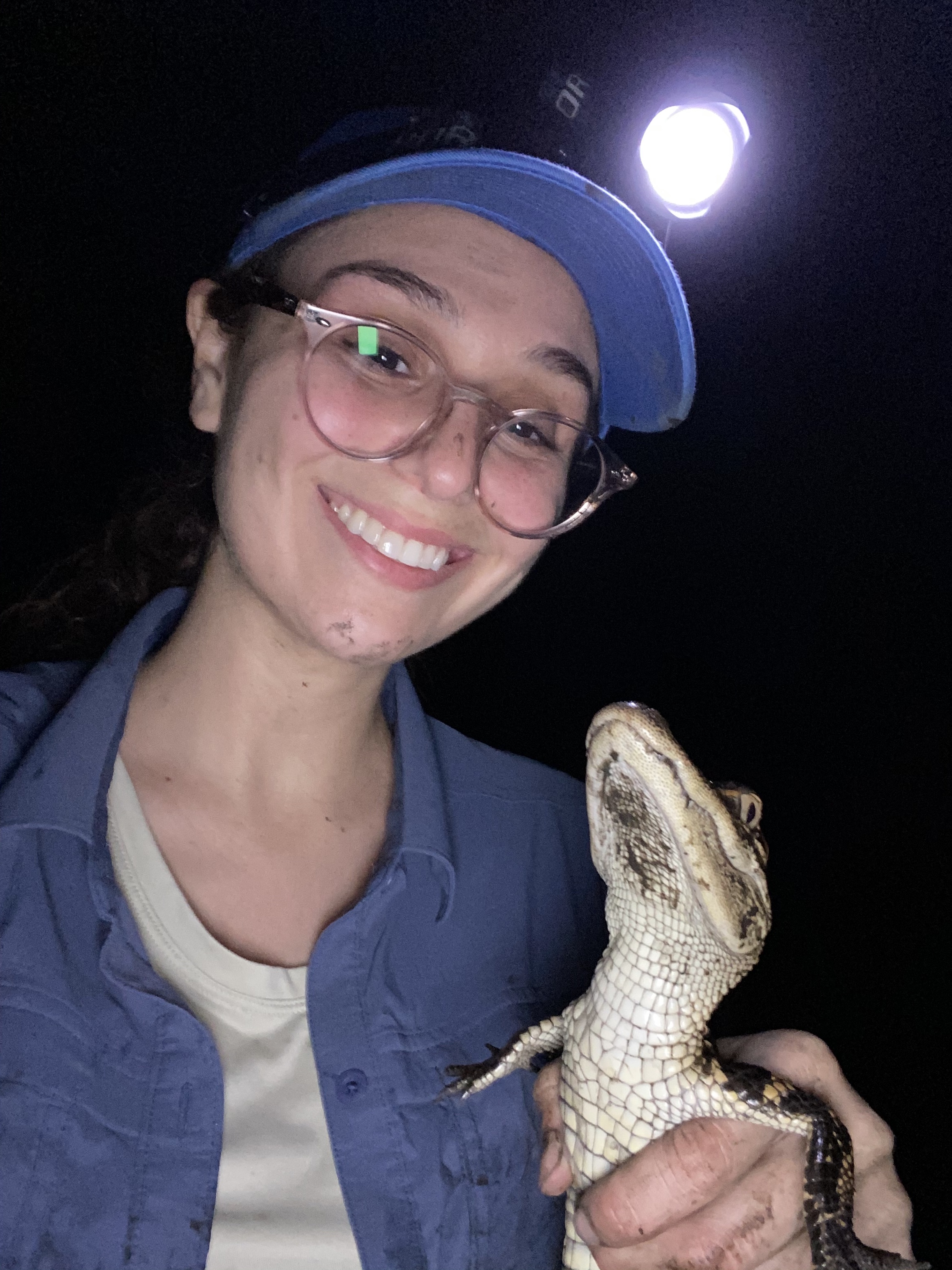The following post is one of a series previewing the research that will be presented at the SETAC North (SciCon4), 14–18 November 2021.
A guest post by Yeraldi Loera, Ph.D. student at Princeton University
Instances of are widespread across the globe. Pesticides are commonly used in agriculture to combat pests, but can also harm other, non-targeted organisms. Exposure to some pesticides can lead to disruption in the endocrine system, altering reproductive development and fitness. showed this kind of disruptive effect across populations of American alligators (Alligator mississipiensis) that were exposed to a pesticide (DDT) spill in Lake Apopka, Florida. Surprisingly, in the same region showed a rebound in the population following their exposure, suggesting possible evolved resistance to pesticide contamination.
Studies from the Campbell-Staton lab group at Princeton University in collaboration with the Parrott lab group at the University of Georgia are seeking to identify genetic markers of selection for adaptation in the alligator population that rebounded after pesticide exposure. The pesticides we are dealing with are mostly organochlorine pesticides, like the DDT that was spilled in Lake Apopka. We started off by inspecting the transcriptome, or how RNA molecules are being expressed, in the ovarian cells of alligators that were exposed to pesticides. Then, we identified unique gene expression patterns, or changes to the developing cells, in the exposed populations, which may be leading to changes in biological function.

After characterizing which genes and functions may be altered, we started a new project to test these changes to alligator morphology, physiology, and behavior to gain a better understanding of the fitness costs and benefits of this possible adaptation. During the summer of 2020, 350 alligator eggs were hatched and tested before being released back to their native sites. We plan to recapture as many as we can to determine survival. Describing how wild populations are exposed, affected, and possibly adapting to pesticides may uncover broader patterns in wildlife responses to pollution by manufactured contaminants.
Presentation information for SciCon4:
Session 03.07.25: Evolution by Pesticides: Evidence of Evolution in American Alligators (Alligator mississippiensis) Affected by Endocrine Disrupting Chemicals
Presentations will be available for on-demand viewing starting 8 November 2021.
